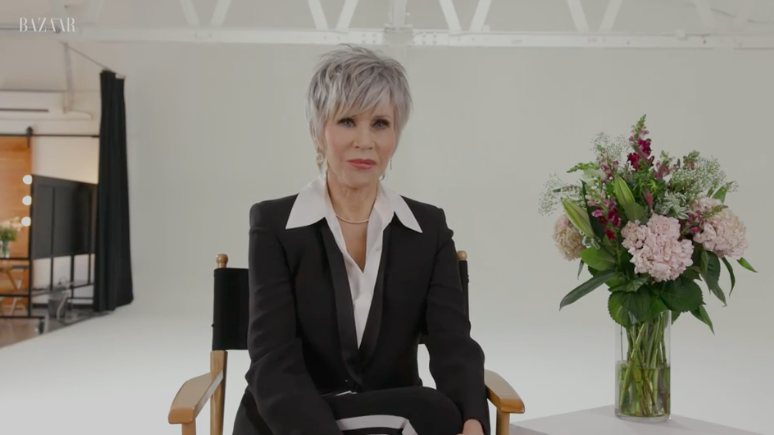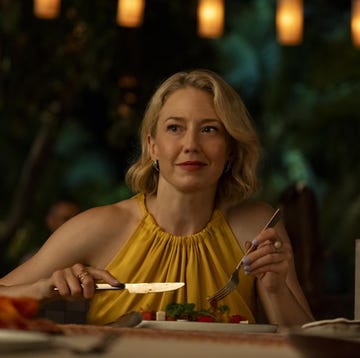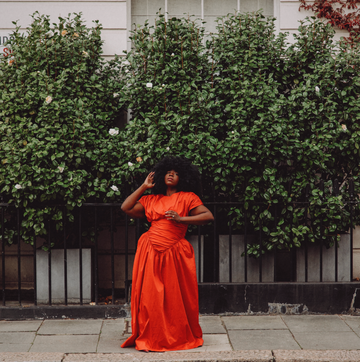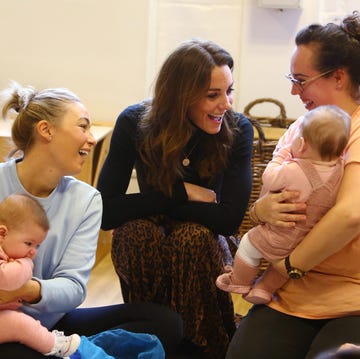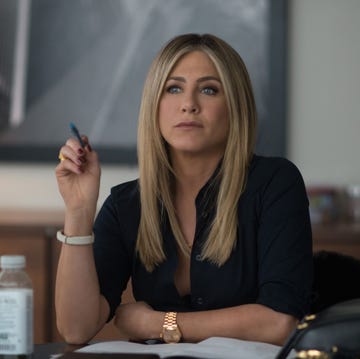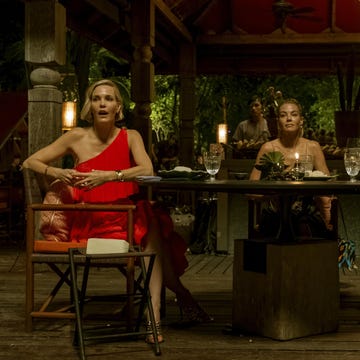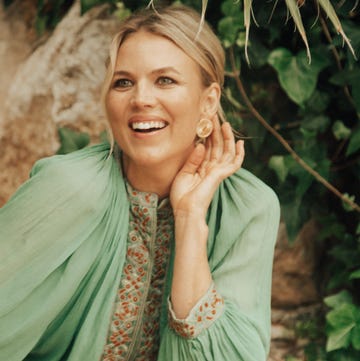Taking a risk, experiencing the unfamiliar and pushing our own boundaries doesn’t grow old. As part of a new series, we are celebrating adventure at every age. Every month, we speak to a different woman who embodies a sense of adventure, and next up is Gloria Steinem.
One of the most important names in feminism, Steinem has influenced and changed the lives of thousands of women. Having founded Ms, the first publication to be created, owned and operated entirely by women, she then moved from journalism to activism, fighting for gender equality and reproductive justice. She treats the women's movement as a lifetime project, and even at 90 years old, continues to campaign, speak and inspire change. Steinem has never done what is expected of her, choosing – until recently – to live a nomadic life on the road, the focus of her best-selling 2015 memoir. Here, she talks about how her travels have shaped her, and why having an 'on-the-road' state of mind is one of the most gratifying and fulfilling things we can all do.
When I was young, my father had a summer resort in rural Michigan. As soon as it got cold, he put my sister, my mother and I in a house trailer, and we set off by car on the long journey to Florida or California, stopping in trailer parks along the way. Our goal was to get to the ocean. This early pattern has meant that oceans and travel have always seemed magical to me. It also meant that I was conditioned early to live in an on-the-road state of mind. By that, I mean being open to whatever we find when we leave our door, whether for a day or a long period. Sometimes just stepping out my door in New York City can be an adventure; being open to whoever I meet, whether it’s the mailman or someone walking in the park, or sitting next to me in the local delicatessen.
Through my father, I learned that it’s possible to live in a way that the world doesn’t usually show you. He had two points of pride: he never wore a hat (as his generation was supposed to do) and he never had a job (as we are all supposed to do). That gave me the courage to be a freelance writer, without the security of a job. This is not to belittle the characteristics of any life, but just to say: we get to choose for ourselves.
Nomadic life continued to change me well into my 20s when I moved first to India for two years and later to New York. I fell in love with India, a country whose ancient diversity and modern rebellion against colonialism I loved. There, I also discovered that what I thought was the Gandhian movement, was really a women’s movement. I went to visit Kamaladevi Chattopadhyay, a colleague of Mahatma Gandhi and a founder of the handicraft movement. She rocked and listened patiently to my questions about Gandhi, and then smiled and said, “Well, of course, my dear, we taught him everything he knew.”
My experience of being a nomad has been magical and fulfilling. For many of us, travel is the most accessible form of escape, and it teaches us both about diversity and sameness; how many different ways there are to meet human needs and how universal human needs are. These facts help us see the universal in the diverse, and help us move towards the new. When I left for India, it wasn't that I was escaping something specific, although it did seem the only way out of an engagement to a kind man. My abrupt departure was not fair to him, but it would have been even less fair to marry him.
I was also rebelling against what was expected of me. I grew up in the post-war 1950s when women were expected to have children to make up for wartime losses. Perhaps because my mother was often ill, and I became my mother’s sole caregiver, such early responsibility seemed to have left me with no desire to be responsible in that way again. I’m not sure I would call this a courageous choice, as others have. It’s just that in my generation, marriage and having children meant that women were way more responsible for house care and family care. It seemed like the end of choice, not the beginning. There is probably always more happiness and satisfaction where there is more choice. Without it, life becomes fate. With choice, it becomes freedom.
For me, it wasn’t that I was making a decision for the distant future – or at least, at the time I didn’t think it was. It was just day-by-day or year-by-year decisions which turned out to be the whole future. I had been drawn to women who were leading their own lives, and being with them gave me a bigger sense of what was possible. That’s not to say that children spell the end of adventure for their parents. I may not have my own children, but I have them in my life, and they seem to have a sense of adventure that sometimes grown-ups have lost. Just asking children what they think, what they want to do, what they hope for their future can help restore our own sense of adventure.
Over my own long life, I have also learned that not everyone is a nomad. In fact, many people prefer to stay mostly at or at least close to home. It’s also true that it’s less safe for a woman to go on the road than it is for a man, yet at the same time, home remains the least safe place for women. I have long had my own permanent home in New York, a city I love, and more and more I am enjoying staying put. I have lived more than 50 years on two floors of brownstone, in rooms that have witnessed lives before mine, and will know others after I am gone.
Since we’re communal animals, it helps to find at least one other person who shares our hopes and ideas for the future. For me, that used to be externally, on the road. Now, it’s more and more who comes to visit – after all, we are social animals. In fact, being deprived of human companionship is one of the worst punishments of all. Whether we are related by blood or by ideas on distant sides of the world, whether we have been divided by species, war, religion, race or class, we are all co-passengers on Spaceship Earth.
Age hasn’t stopped me from living the way I want – in fact, perhaps, it is the opposite. The prescription of the ‘feminine’ role is mostly for the central years of life. It’s why women are said to be more free before we are 10 or after we are 50 or 60. We can appreciate that freedom, and try to bring it into the central years of life. Adventure means attempting something new, something where the goal or even ending is not clear. That’s an important way of staying open and not being the prisoner of our predictions. Stay open to the moment, even if it goes beyond your plan. Let possibilities become realities.
As told to Ella Alexander



